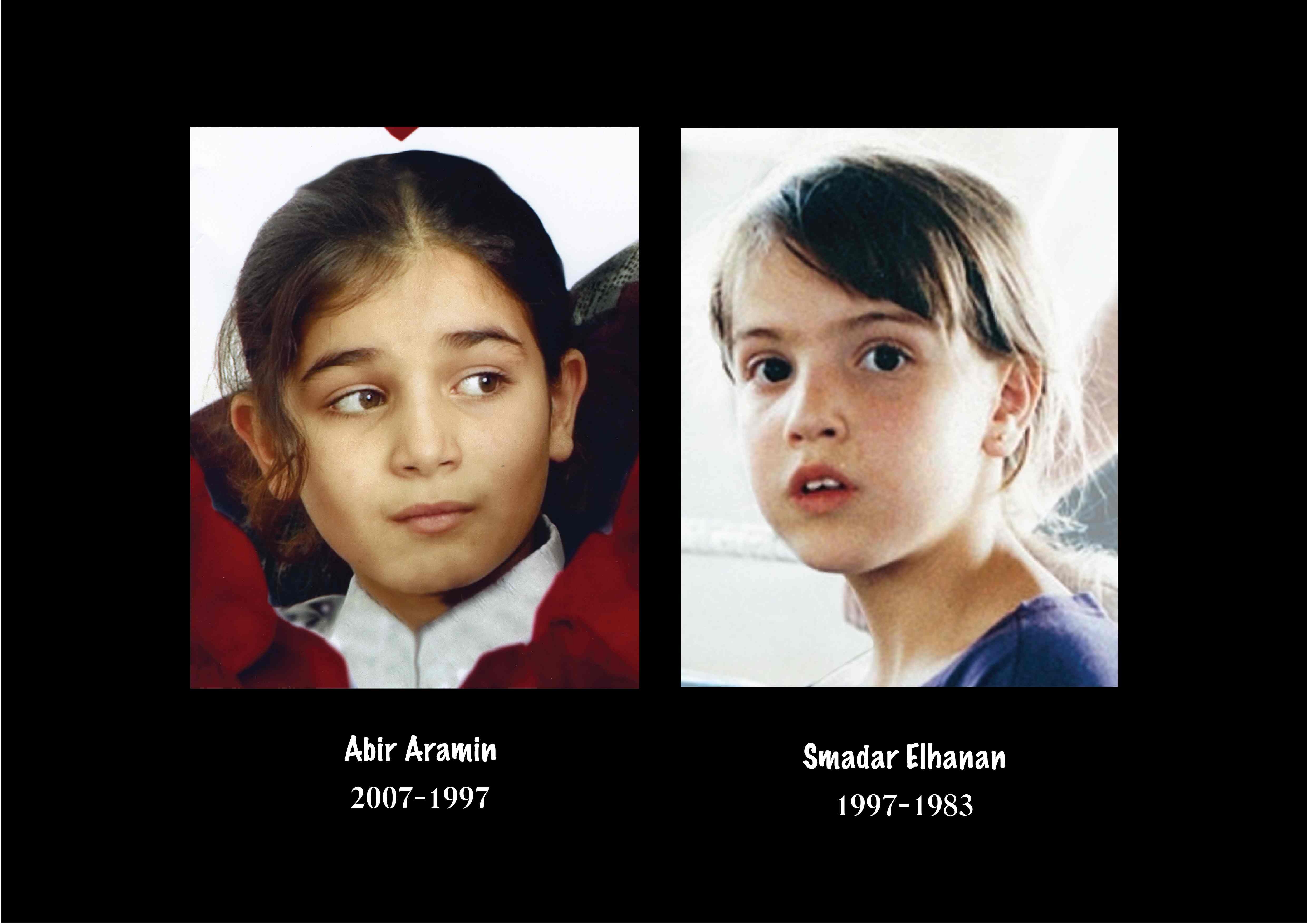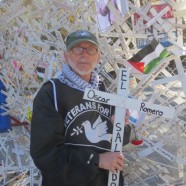
It took the killings of their daughters to bring them together and to move beyond fear and hatred. Bassam Aramin is a former Palestinian Fatah fighter whose daughter, Abir, age 10, was killed in 2008 by Israeli police close to her school in Anata, just outside of Jerusalem. Rami Elhanan is a former IDF soldier who fought in the 1973 Yom Kippur War and is the son of a Holocaust survivor. His daughter, Smadar, age 13, was killed, along with three of her friends, by two Palestinian suicide bombers. Once enemies who despised each other, both men arrived at the same conclusion -- that violence only begets more violence. Thus, in 2005, was created a joint Israeli-Palestinian organization called, ironically, “Combatants for Peace.”
As part of a Global Exchange delegation that travelled to Israel and Occupied Palestine in December, I had an opportunity to meet with Rami and Bassam. During his seven years in Israeli jails where he received beatings, Bassam had a life-changing experience. First, he saw a Holocaust film and cried when he saw innocent people about to be killed. Later, one of his jailers recognized Bassam’s humanity, and provided him with books by Gandhi and Dr. Martin Luther King, Jr. Despite this, Bassam said his first meeting with Israelis in 2005 was difficult as both sides were suspicious of the other as there was much distrust. Israelis saw Palestinians as “terrorists” and Palestinians saw Israelis as “jailers” and “occupiers.” Nevertheless, both sides educated each other and agreed to work for a common goal—to create a peaceful society for all their children.
Combatants for Peace agreed that the Israeli Occupation is the source of most of the on-going violence and they agreed to work to educate Israelis and Palestinians to understand the hopes and suffering of the other side so as to create dialogue and reconciliation. Combatants for Peace has grown to 600 members as they aspire to change the dynamics between Israelis and Palestinians by employing peaceful, non-violent means.
Tellingly, Gene Sharp’s 186 methods of non-violent resistance was cited by Bassam. As for revenge towards the Israeli soldier who killed his daughter, Bassam said he still seeks justice, not vengeance, despite learning all charges were dropped against the accused IDF member. This grieving father said that “Israelis will never feel free unless Palestinians feel free,” as he cited Dr. King’s “Injustice anywhere is a threat to justice everywhere” quote.
Rami was a tank commander in the 1973 Yom Kippur War and related that he had a lot of friends who were killed. Leaving the IDF, he married, had children, and settled in Jerusalem. On September 4. 1997, two Palestinian suicide bombers killed four young girls, including his daughter, Smadar. Seven days of mourning followed while his grief and rage persisted. And, yet, as Rami reflected, he wondered what good it would do to pursue vengeance as he knew it would never bring his daughter back to him. Rami had seen two paths: one, revenge, or two, choose the path of trying to discover why these young men would kill themselves and other innocent people.

He soon met a Jewish religious leader whose son, Eric, had been captured by Hamas and killed. This religious leader invited Rami to his house for a meeting. A hundred people came, and all were grieving parents. What shocked Rami, though, were the Palestinians who came to this meeting. For the first time in his life, he shook hands with Palestinians, and that night, he said, he had a religious experience. He was 47 but had never seen Palestinians as people, as human beings. Many of the people he met became part of a group called the “Families Forum,” an Israeli-Palestinian organization for bereaved families. Rami offered our delegation this insight: “There is a wall in all of us of fear and hatred. We hate them because we fear them -- and we fear them because we do not know them. In the end, it will be with courage that we learn to love one another as we love ourselves.”
In closing, Rami agreed with Bassam, who is now one of his deepest friends, that the occupation must end and the on-going repression must be stopped. He reminded us that Jews are not evil, but that they are fearful and afraid, especially when the second Intifada occurred in 2000. Israelis were living in terror, he said, so the government put up the 25-foot high walls. Yet, as Rami said, the walls in our heads are more critical as they lead to the dehumaniization of the “other,” in this case, of all Palestinians. Two men, former warriors, Bassam and Rami, who had a common bond of grief, anger, and hatred for the “other” found the courage to move beyond hate and violence as both have become part of the community of people who seek peace.
For additional information, please see Combatants for Peace.
Will Thomas lives in New Hampshire, where he had a lifelong career as an educator, teaching US History and American Government. Since 1989, he has been an active member of Veterans for Peace and creates awareness for this organization. Will is a vocal and productive activist for many causes related to human rights, fairness and social justice.









